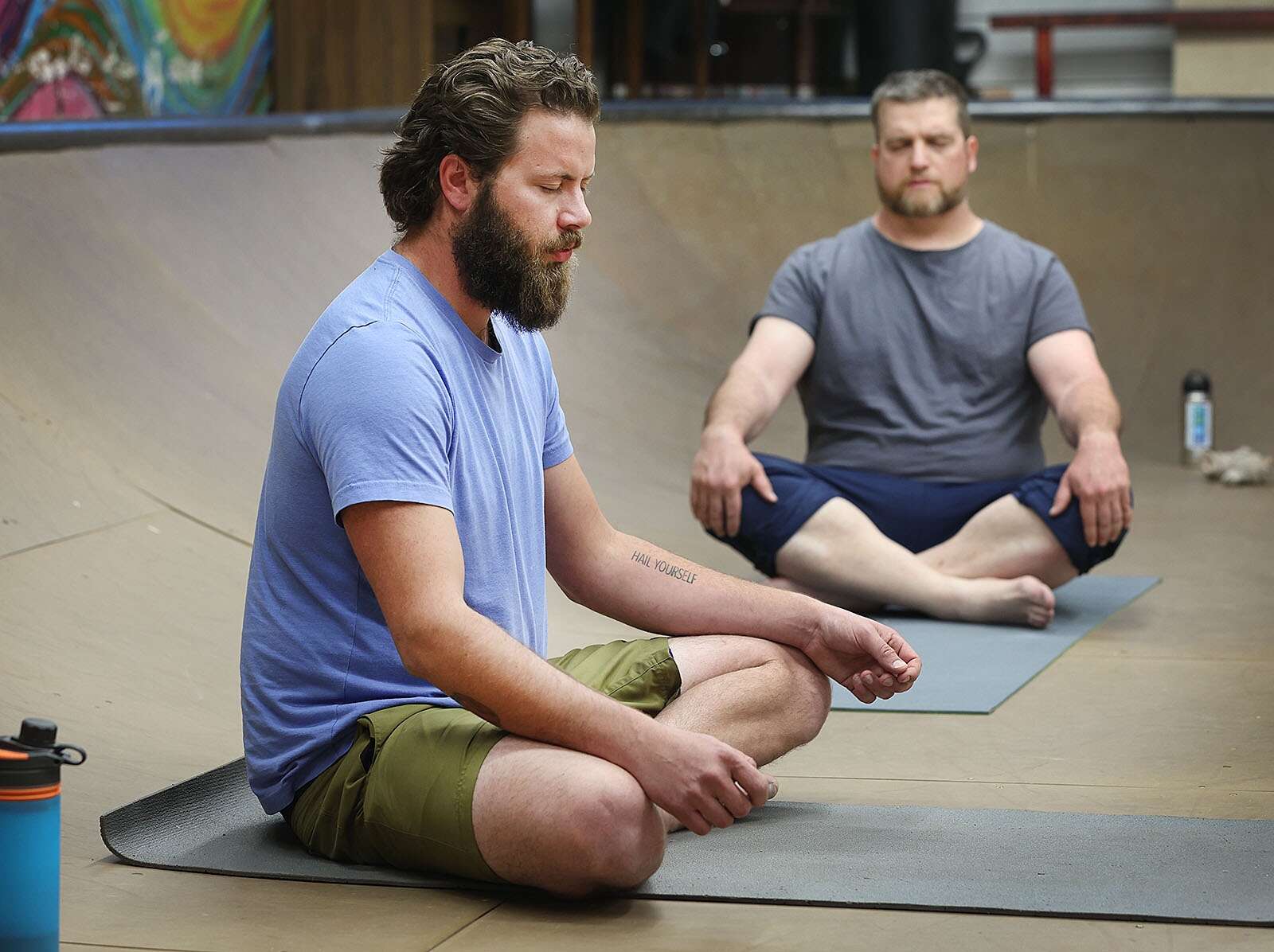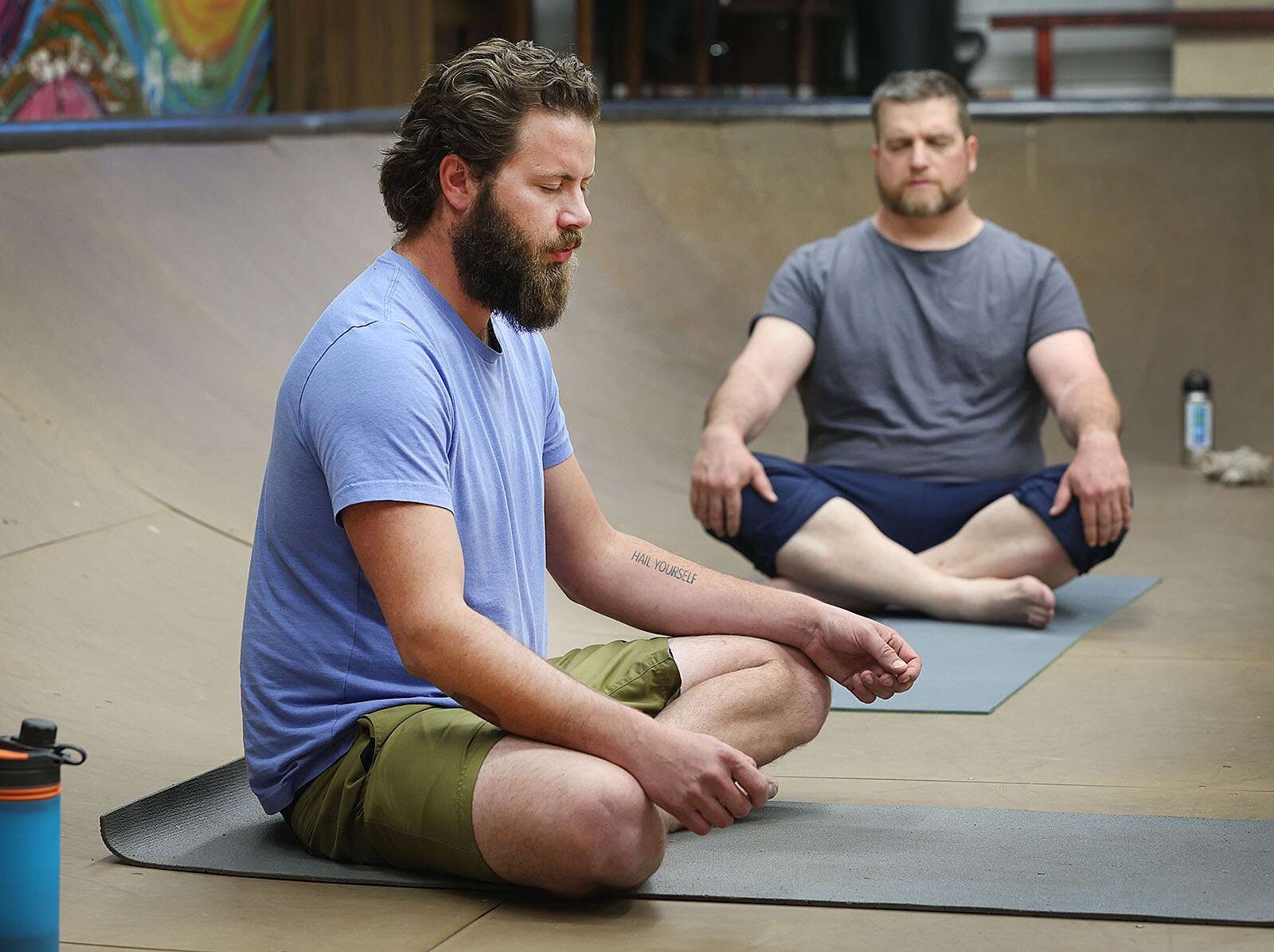The non-profit organization emphasizes healthy lifestyle choices

In Weeds offers the restaurant industry healthy alternatives to drinks. (Jerry McBride/Durango Herald File)
Jerry McBride
For many in Durango, the restaurant and hospitality industry is how they make a living.
Restaurants and bars are highly emphasized due to the cities high rate of sightseeing, especially during the summer. While many workers are passionate about their jobs, the industry comes with a level of stress and mental unrest.
In 2019, John Rowe and Blaine Bailey launched Weeds, a nonprofit organization that helps change the culture of mental health in the restaurant industry.
Billy sat down The Durango Herald Discussing mental health and substance use issues in the hospitality industry.
Q: How did weed start?
A: We start a few years ago, and before that I have been in the industry for 17 years. I actually first thought of this idea in 2015.
My co-founder, John Rowe, was working for me at Carver, and we had lost one of our cooks. We were already working with him trying to connect them to other resources in the city, but we were still running the business.
And John, he was in school for his sociology as a (licensed clinical social worker) and everything. I said to him, I said, man, when you graduate, we need a cure for rude chefs, and we laughed, like, that’s never going to happen, you know? Years passed, and in 2018, I was suffering from the loss of relationships and was hitting hard on the bottle and insisting on working all the time.
I could not spend time on my relationships and friendships and my personal relationships. So I decided it was time to take a break for a bit and went to Wisconsin for the summer and got away from everything here.
I went to work in a company. And our chef, she gave us a project for the summer and it was (focused on) how can we save the world through food?
So I started thinking about it. I’ve come down to the kind of person, you know, you can’t help someone else until you help yourself. Then it was like, what does it look like? And why not our industry? The hospitality industry? Because we are connected to every other industry
Everybody from bankers, construction, real estate, whatever, they all go to restaurants at the same time, you know, usually at some point in the week and we have a great opportunity to connect with other industries that have good food. were available for services. The drinks, the atmosphere, all that variety.
Everybody from bankers, construction, real estate, whatever, they all go to restaurants at one time or another. We have a great opportunity to connect with these other industries. We can really change the flow of someone’s day.
That’s where the idea started, and then we decided to bring it back to Durango because we have so many restaurants in town.
I already knew a lot of restaurant chefs and focused on restaurants, and it was like we made that connection, because we were talking about mental health and substance use and suicide prevention, all that heavy stuff.
Q: If you were to measure it, how bad are mental health issues or substance use in the restaurant or hospitality industry?
A: In La Plata County I don’t have those numbers off the top of my head. To give you an idea nationally, and it’s even worldwide, we’re the third largest industry for substance use issues.
I think the top two are like health and construction or something. But you know, we always laughed like it was so bad in our industry because it’s really like a rock star lifestyle, and you can party and still keep your job and all that.
Then when we look at the entertainment sector and its number 4, and (hospitality) number 3. It’s like, oh, we really party harder than rock stars.
Question: Why do you think so?
A: There are many things that are repeated like this. Overworked, underpaid, and it’s a huge passion-based industry.
People ask, why would you stay in this industry if it doesn’t pay very well? We love what we do. We like to help others, take care of others, whatever. It is (a) a low-income industry, which is what we are trying to change and work on, making a significant career out of this industry.
And then there’s the ease of access. If you work in a restaurant, wine is always there. Especially if you’re a bartender or server, and constantly spilling drinks. So he tried to change this culture.
A lot of restaurants will do shift drinks and things like that, and so try to get away from that and provide more healthy incentives and rewards or choices.
Yes, overworked, underpaid, easy access, culture, tradition, you know, it was an industry of wrongdoers and users, and you can still keep your job in starving.
This was my first job.
My manager was like, I don’t care what you’re in as long as you can still do your job. We’ll start drinking at 8, you know?
Q: What does your organization offer to help people in the restaurant industry?
A: The biggest is our advanced self-care program. So, these are our healthy rewards for making healthy choices. And that’s how we help our businesses because giving shift drinks is one of the cheapest and easiest benefits workers can get.
But there are people I don’t want to drink either who are under 21 or they are sober. Then it’s like, well, where’s my $3 for not buying my shift drink or something? People are like, I might as well buy my shift drink because there’s nothing else.
So it’s like a punch pass. Every time they stop drinking, they get a punch. Once they get 10 punches, they can exchange them for $25 vouchers for a variety of healthy alternatives. This is the number 1 used item.
I moved here from Arkansas 10 years ago to come and do all the fun stuff and can’t buy anything fun. So another option is trying to remove barriers, we pay for passes to climbing gyms, yoga studios and then we have like snowshoes and snowboards for people in the industry to take for free.
In the summertime, it’s paddle boards, kayaks, and then just connecting people with resources, training, things like that.
Things like professional life skills and capacity building and training, we’ll pay for people in the industry to lower the cost barriers so they can grow and grow however they want.
Q: Do you think restaurant owners can do anything to better contribute to this cause, or is it just part of the industry?
A: There is always, I think, an individual business level, communicate with your team, and be part of your team and listen and care for your employees. I think that’s the biggest thing, looking at the culture, the toxicity and how you can help change it.
Also, contact us for help. There is no shame in that. I wouldn’t blame the individual restaurant. This is just how our industry has been for the past few years.
I think asking for help, understanding and seeing how they can change those who talk to their team, what will they see? Also, being a part of change and being at the forefront and leading, for example, you know?
Yes, there are all kinds of things they can do. When we first started at Weeds, we asked, What is our ultimate mission and vision? It’s like, well, let’s change the culture, but it might take 10 to 50 years or whatever.
When covid hit, and it really promoted a culture change because people realized how much they should pay attention to their mental and physical health.
Restaurants were like, here’s the pay, here’s the benefits, here’s this, but then the food costs shot through the roof because of inflation, and now they’re struggling.
Owners, chefs, and managers are also required to wash dishes and operate every part of the restaurant. So, they are no longer able to communicate with their team because they are tired, they are dehydrated or whatever.
Q: What are your future plans for Weed?
A: Currently, we are expanding into Montezuma and Archuleta County.
We work with another organization like this out of Denver, but they are like the urban part and were rural (kidding).
I think, you know, it’s just being there and supporting people and helping to create these opportunities for people and really changing the culture.
It also collaborates with others, from business owners to other nonprofits. And it’s such a meaningful industry with all the food shows and documentaries on TV.
It really affects people’s lives, and it can be a really amazing industry. That’s what I miss the most is making food and seeing someone eat my special food and really like it.
It’s really cool, and I think that’s what’s really unique about our industry, is that a lot of people come from broken families and they build this new family outside of working in a restaurant.
tbrown@durangoherald.com
#Weds #cofounder #talks #mental #health #restaurant #industry
Image Source : www.durangoherald.com
